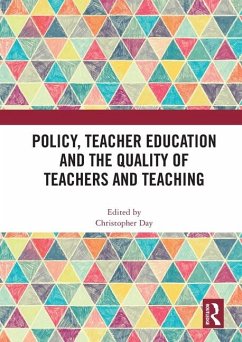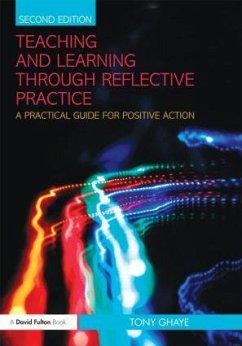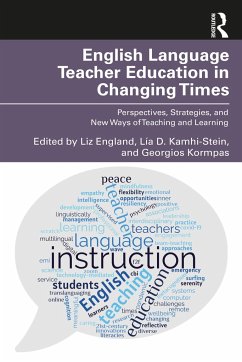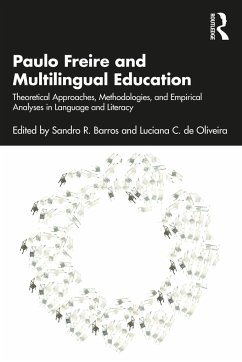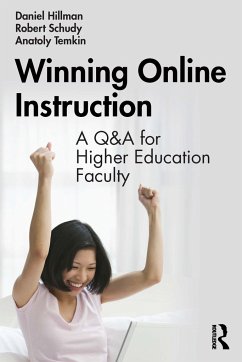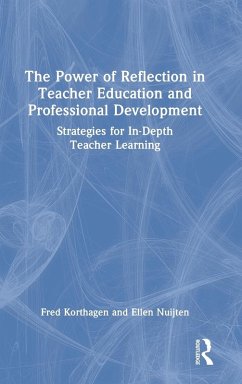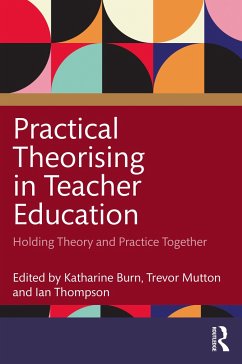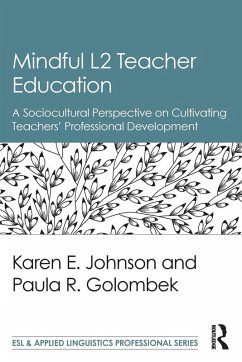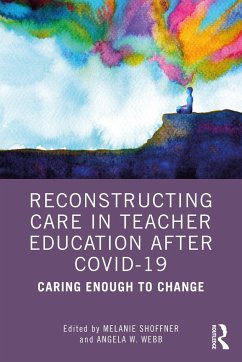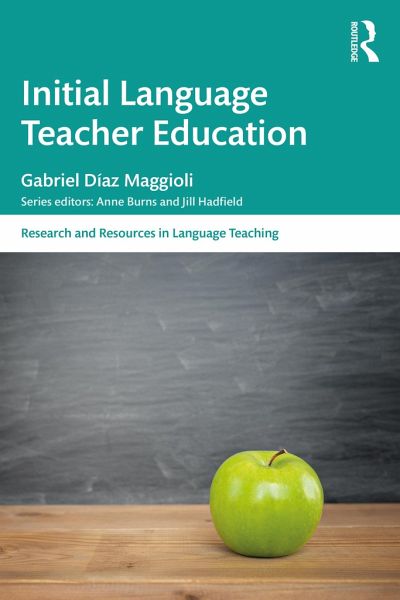
Initial Language Teacher Education
Versandkostenfrei!
Versandfertig in 6-10 Tagen
42,99 €
inkl. MwSt.
Weitere Ausgaben:

PAYBACK Punkte
21 °P sammeln!
Initial Language Teacher Education provides language teacher researchers, as well as teachers of teachers, with an introduction to research on how language teachers learn to teach before they begin practicing.Theoretical work is organized into the author's original framework, which fosters the exploration of student teachers' experiences as learners, while helping them develop core concepts, practices, and dispositions that encourage excellence in teaching. This innovative framework also provides mediated learning experiences designed around student teachers' professional development, an appro...
Initial Language Teacher Education provides language teacher researchers, as well as teachers of teachers, with an introduction to research on how language teachers learn to teach before they begin practicing.
Theoretical work is organized into the author's original framework, which fosters the exploration of student teachers' experiences as learners, while helping them develop core concepts, practices, and dispositions that encourage excellence in teaching. This innovative framework also provides mediated learning experiences designed around student teachers' professional development, an approach that helps them to theorize their own practices and take ownership of their own professional development at an intellectual level.
By combining a strong and updated research base with practical classroom tools that have been extensively piloted, Initial Language Teacher Education bridges the gap between theory and practice in teacher education and is a key resource forstudents, researchers, and instructors in language teaching.
Theoretical work is organized into the author's original framework, which fosters the exploration of student teachers' experiences as learners, while helping them develop core concepts, practices, and dispositions that encourage excellence in teaching. This innovative framework also provides mediated learning experiences designed around student teachers' professional development, an approach that helps them to theorize their own practices and take ownership of their own professional development at an intellectual level.
By combining a strong and updated research base with practical classroom tools that have been extensively piloted, Initial Language Teacher Education bridges the gap between theory and practice in teacher education and is a key resource forstudents, researchers, and instructors in language teaching.





